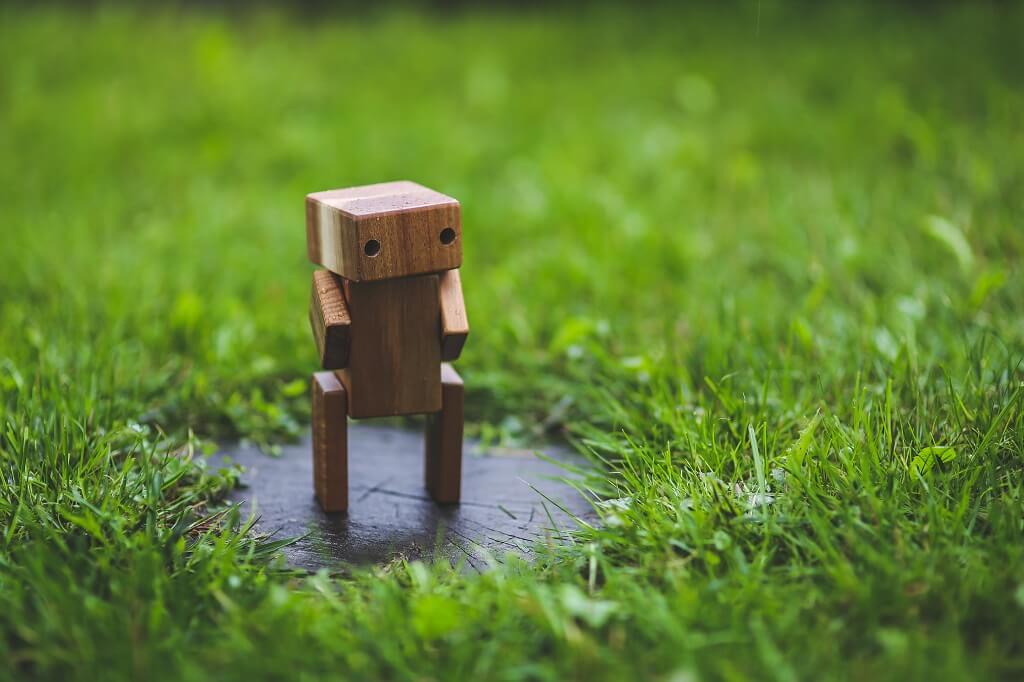Will We Ever Be Able To Have A Real Conversation With A Robot?
There are now more than seven billion people on the planet. And we can chat to any of them by simply picking up the phone and dialing their number (if we have it). But that doesn't stop us from dreaming about creating machines that will talk to us too. We have a fascination with robotic life, and what it could mean for our future.
In the business world, the implications would be profound. You could add chat box to website HTML and it'd be able to answer practically any question users asked. You wouldn't have to supply any sales reps, massively cutting your costs.
It would also help the elderly too. You could have a robot that spent time with grandma or grandad, providing relationships that they couldn't get elsewhere.
Whether we will ever be able to have a conversation with a robot, though, is a matter of contention. Some public intellectuals believe that it is totally inevitable, while others don't think it's possible at all.
Robot Intelligence Is Inevitable
Famous people who believe that the robot revolution is inevitable include Elon Musk and Bill Gates. But why do these visionary thinkers believe that it is going to happen?
As philosopher Sam Harris points out, you only have to make two assumptions to believe that robot superintelligence is going to happen. One is that we will continue to improve our intelligent machines. And the second is that we are not currently near that peak.
With those two assumptions in mind, it becomes clear that robots will eventually come to dominate the intellectual space. It just seems like an inevitability.
People like Harris argue that this represents a crucial insight. If computers can become more complex over time, they will inevitably move closer and closer to a human-like state. And eventually, they will be capable of all the feats we think makes us special – such as imagination and creativity.
Harris actually takes his argument even further. He says that even if machines only reach human-level intelligence, they will still become the dominant intellectual force on the planet. That's because they can operate millions of times faster than people and, therefore, can get 20,000 years of human-level work done in the space of a week – week after week.
The potential for an intelligence explosion, therefore, seems inevitable.
But is it?
The Counterargument
There is another school of thought that outright rejects the claim that we will be able to have a real conversation with a robot. And the reasons come down to consciousness. Robots are just following instructions in their code. They don't have any subjective experiences as people do.
This assertion might sound a little strange. But it turns out that there is good evidence that robots cannot achieve consciousness. That's because the mechanisms of consciousness are not understood at all. Despite claims, nobody understands why it feels a certain way to be a person or an animal. We can see neurons firing under a microscope, but we have no idea why such patterns feel a certain way. It's a deep mystery.
Researchers like David Chalmers call this issue “the hard problem of consciousness.” In principle, we could study the brain using conventional methods for an eternity and still not understand why chocolate tastes how it does. We could describe all the chemical reactions in the mouth and brain in exquisite detail. But that would never be sufficient to provide an explanation of our subjective experience of it – why it feels a certain way.
Of course, you could argue that robots don't need subjectivity to hold a conversation. And you'd be right. They could just have a very sophisticated program that knows what to say in each moment. But it would always feel a little ersatz. You'd know that behind the smiling exterior of the robot, there was just a set of calculations going on in the background. Not exactly human.
There is a deeper problem, though, with Sam Harris's argument. And that's the fact that when humans reason, they are not doing so computationally.
The current paradigm is purely computational, meaning that robots figure things out using calculations stored in memory. It works great for many tasks, such as word processing and computer graphics. But it breaks down whenever you break out of narrow tasks. It's why you still can't really have a good conversation with Siri or Alexa, despite both assistants having access to all of the world's information. Machine learning is addressing this in narrow domains. But even that will never allow you to conduct a flowing and interesting conversation with a machine.
Techno optimists see this as something superficial. Once computation becomes complex enough, the conversational ability will arise naturally. But there are many researchers out there who believe that this view is naive. Robots are stuck in the land of computation while human consciousness appears to tap into something else – another form of reasoning science is yet to discover.
Predictions For Human-Level AI
So that's both sides of the argument. But when do people believe robots will pass the Turing test and be able to have real conversations with us?
Well, if you go back to the 1970s, people made predictions that human-level AI would emerge around 1993. In Eder Re's The Singularity, he predicted that 2035 would be the year that human-level intelligence would finally arise. He came to this conclusion based on hardware extrapolation and the overall growth in the human population.
Oxford researcher Nick Bostrom argued in 1999 that superintelligence could emerge in the first third of the 21st century, and almost certainly before 2050. He put the odds at around 50 percent of it happening in this time frame. In 2000, Bostrom wrote another book where he implored people to take the possibility of human-level AI seriously before 2050.
Google director Ray Kurzweil probably has the most famous predictions of the bunch. We went on record in his 2005 book, The Singularity is Near, suggesting that machines would equal the intelligence of a single human in 2029 and then the entire human race by around 2045.
Peter Voss in a video entitled Increased Intelligence, Improved Life, predicted in 2007 that we would see a machine intelligence explosion in less than ten years. It looks like he was wrong.
Moravec which wrote The Rise of the Robots in 2009 suggested that human-level AI would emerge well before 2050, again using a hardware-based analysis. He also pointed out that once machines acquired some basic skills, they would also be able to carry out calculations much faster than the average humans.
David Chalmers, the philosopher we mentioned earlier, suggests that AI is likely in the 21st century. But he is skeptical about hardware extrapolations. In his view, we don't have a good enough understanding of what intelligence is yet to reverse engineer it in the form of a robot. It may take centuries of machine evolution, he says, to get to the stage where machines achieve human-level intelligence. And even then, it may still feel ersatz if they don't have genuine consciousness.
Scientist Paul Allen pushes back against Ray Kurzweil's view that machine intelligence is near in his book, The Singularity Isn't Near. He flags up the slow rate of brain science progress. And he also points out, as Chalmers does, that we still don't have a good idea of how the brain really does what it does. Or even whether the brain itself is wholly responsible for conscious experience.
Bottom Line
Overall, therefore, the predictions are that we will be able to talk to robots. But whether this will become the reality depends heavily on how these emerging technologies evolve. We still don't know how things are going to pan out.
On the one hand, computers and software are likely to continue to improve. Ask anyone in the field, and they will tell you that humanity is still a long way from hitting the ceiling. But, on the other, there seem to be good philosophical reasons why AI can't develop in the current paradigm. Elements of human intelligence are explicitly non-computational.
That's not to say that we can't emulate what nature does to produce intelligence. It's just that we clearly do not understand it yet. Nobody can point to mechanisms in the brain and say “this is what is making a person conscious.” It's just not possible. We can watch neurons firing when somebody eats a cheesecake, but we can't get the sensation of eating from that. It just appears as a readout on a screen.
So what's the most likely outcome? Well, if you're under thirty, there's a good chance that you'll have some kind of conversation with a robot in your lifetime. Machines are going to get better at understanding language and carrying out a conversation. The biggest stumbling block will be their lack of common sense. Computers have no real understanding of the world at all. They don't have a sense of objects as we do. Instead, you're essentially talking to a very complicated abacus which is good at giving you the outputs you want. It's not a person.
839GYLCCC1992





Leave a Reply